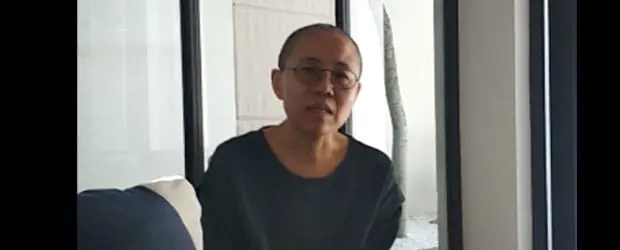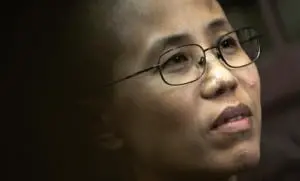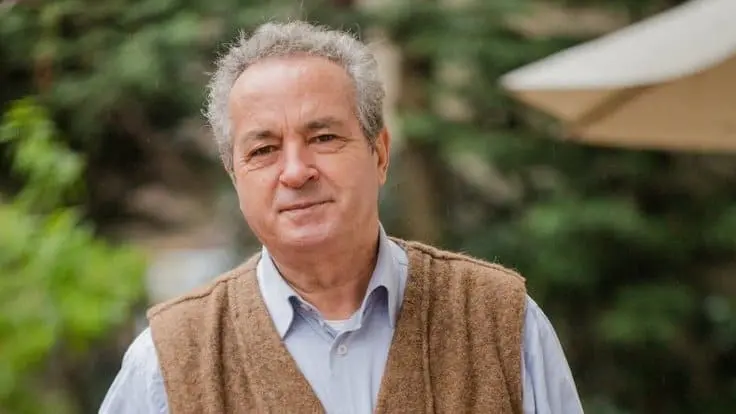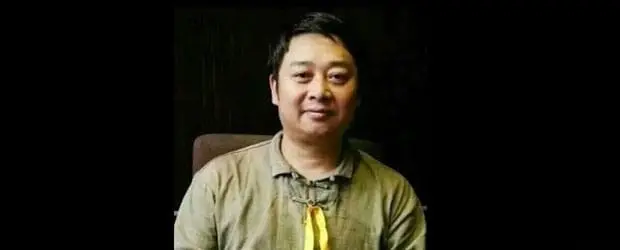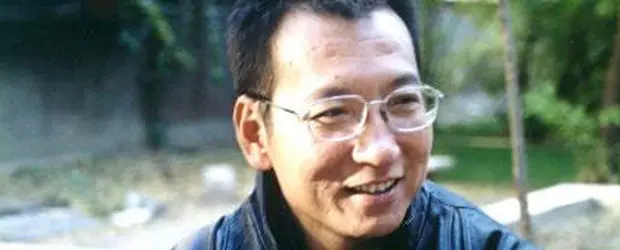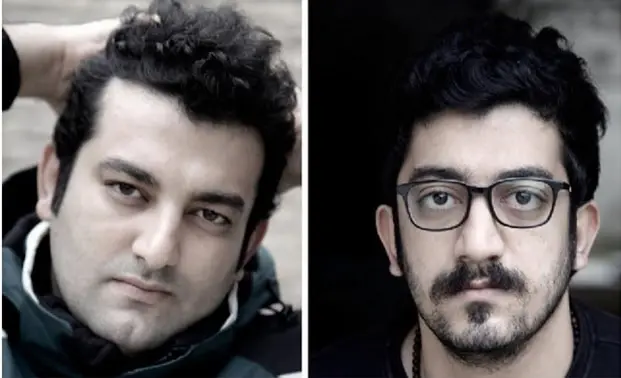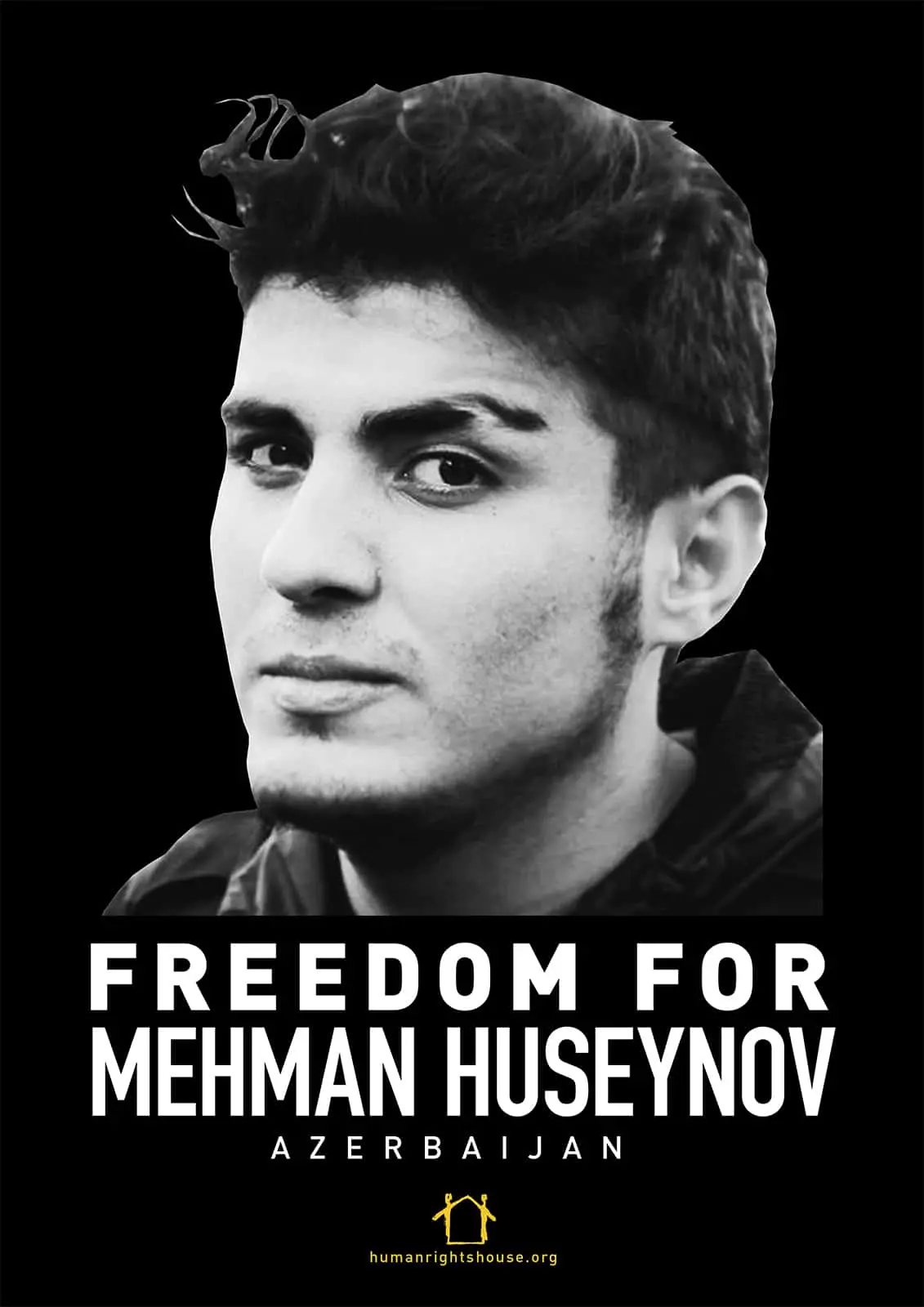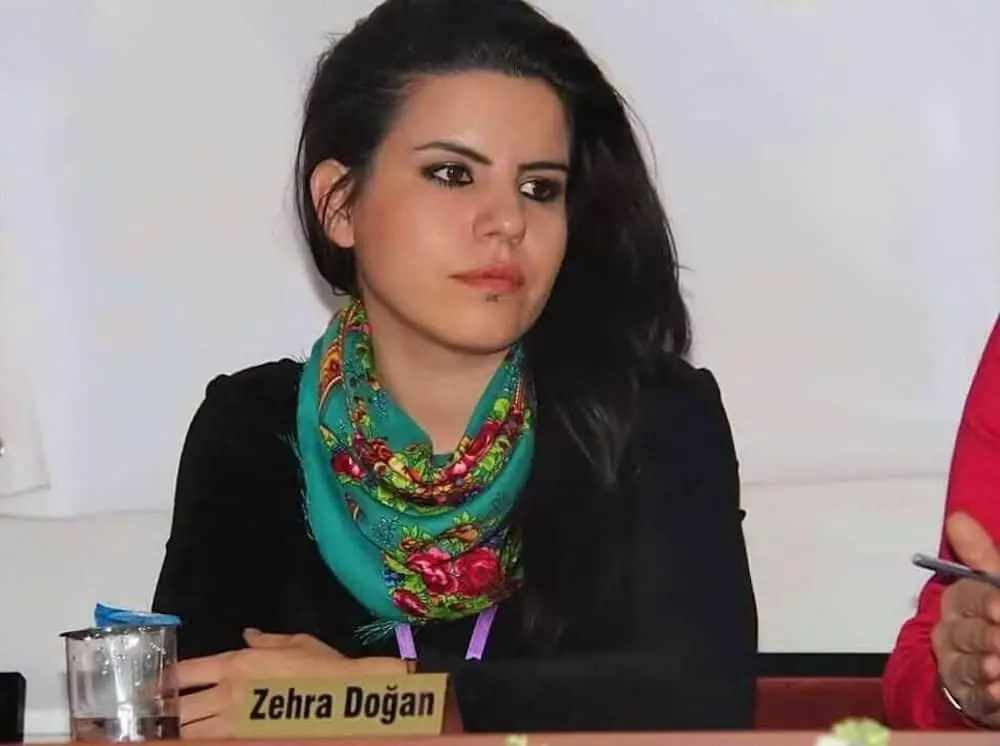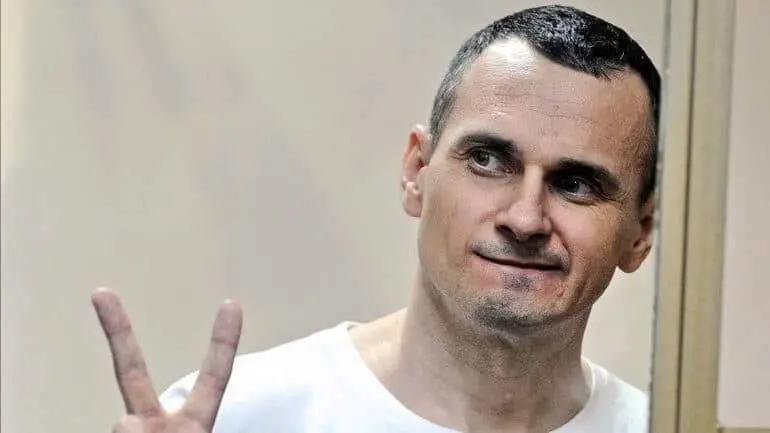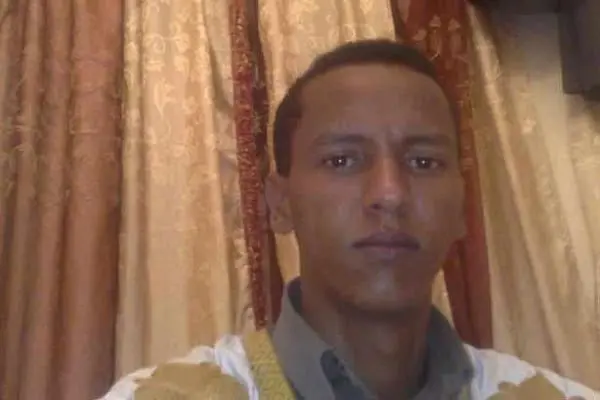Share Kirill Serebrennikov’s case on social media »
On August 23, 2017, Kirill Serebrennikov, a prominent Russian theater director and prolific playwright, was put under house arrest on fraud charges that he has denied. As an activist who has espoused views critical of the Russian government, Serebrennikov is a desirable target of repression by the Russian government.
A champion of the contemporary arts, Serebrennikov has promoted modern art during his prolific career as a playwright, director, and TV anchor. As the director of the Moscow Gogol Drama Theater, Serebrennikov transformed the theater into an interdisciplinary center for the arts that features film screenings, lectures, discussions, concerts, and exhibits alongside traditional plays.
Serebrennikov was detained and charged with embezzling 68 million rubles ($1.1 million) allocated for “Platform,” a project which was designed to popularize contemporary dance, music, and theater in Russia. One of the prosecutors’ arguments was that he took the money from the government to produce a play that was never produced—despite the fact that there are reviews, videos, and pictures from the very play in question being performed at least 15 times in various cities. Almost 9,000 people, including Cate Blanchett, have signed a petition calling for his release. Serebrennikov’s supporters say the trial is being used as a political tool to silence the director whose productions have openly criticized political conditions in Russia.
On August 25, 2017—a day marking the two-year anniversary of the sentencing of Ukrainian filmmaker Oleg Sentsov to 20 years in a Siberian penal colony on trumped-up charges of terrorism—another playwright and filmmaker wrote an open letter to support his colleague and friend Kirill Serebrennikov. In his open letter, Ivan Vyrypaev urges Russian cultural figures to refuse to collaborate with and support the repressive Russian government in any way. The open letter, written in Russian, has been translated here into English for the first time by Margarita Maliukova.
Open Letter of Dramaturge and Director Ivan Vyrypaev in Support of Kirill Serebrennikov
I, playwright and director Ivan Vyrypaev, would like to address the figures of Russian culture on the occasion of the arrest of my friend and colleague, director Kirill Serebrennikov.
Colleagues, friends! Let us honestly tell ourselves that the arrest of Kirill Serebrennikov will stay unpunished for the government that rules over Russia today. I see how most of you have written your letters of support, come to the meeting, given interviews, and even addressed the president. And this, if you excuse me, is becoming a tragicomic phenomenon. Because meanwhile, most of you continue shooting your films, putting on your plays, and receiving subsidies from the Ministry of Culture. In one way or another, by collaborating with this government and thinking that, with our art and civic engagement, we can change something in this country or contribute greatly to these changes, we just repeatedly fool ourselves and our country. And this, if you excuse me, looks very childish.
For starters, it would be useful to honestly define what and who this government is. In 1917, an armed coup took place in Russia, and power was transferred to an illegally created government of “Bolsheviks.” This group of people waged a bloody terror against its own citizens. Vladimir Lenin and Joseph Stalin are undoubtedly criminals and worthy of one thing only—collective rebuke. From 1917 until today, power in Russia has not changed. Today’s government actively follows the legacy of the “Bolshevik” terrorist organization. Lenin monuments are everywhere, his body lies on Red Square, to say nothing of the fact that, even today, Stalin busts and monuments are being erected. The government also actively uses the paraphernalia of the Bolshevik terrorist organization: flags, symbols, streets carrying the names of the chief leaders of the Red Terror, the music of the communist anthem (with other words), etc.
In 1991, after the breakup of the USSR, there was no popular referendum in Russia on the question of what and who Russia is now or on its relationship to the illegitimate regime of the Bolsheviks. Formally, we became known as the Russian Federation, but our state ideals follow the ideals of the “Bolshevik” government. A condemnation of Lenin’s and Stalin’s crimes, a general repentance, did not take place. Lenin is still not buried, while the political symbol of the hammer and sickle, which in most civilized countries is treated like the Nazi swastika, is still present in public spaces as symbols, as souvenirs, and as memories which are openly venerated in our country. One has but to take a walk down the Old Arbat and see how everything there is literally shining in red stars, Red Army helmets, Lenins, and Stalins. Imagine if a similar number of Nazi symbols were being sold in the center of Berlin.
But the major problem is that, in the minds of most Russians and cultural figures, Bolshevism is not equal to Nazism. And therein lies probably the major problem Russia has both in the internal construction of its society and in its communication with the outside world, particularly with the countries of Europe. But one must understand that this departure of modern Russia from its Bolshevik ideology does not happen for this reason, and that today’s government is a descendent of the illegitimate criminal government that, until today, has had control over society since the October revolution. And it is interesting that Vladimir Putin’s main argument justifying the occupation of Crimean territory and, generally, Russia’s participation in the conflict in Ukraine is the argument that there was a state coup in Ukraine and the government is controlled by an illegitimate political body—but the same exact thing may be said of Russia, in which the current government is a direct descendant of a Bolshevik terrorist group that came to power illegally. In any case, there has not been an official refusal to continue the activity of the communist regime and its symbols, a recognition of its rule as illegitimate and criminal, or a prohibition of its symbols and attributes. Therein lies the source of the conflicts in the Baltics, Poland, and the countries of the former “socialist camp.” This is also why modern Russia and the Russian language are unappreciated by a number of states (Ukraine, the Baltics etc.), because the Russian language is directly associated with the powers that occupied not only Russia but a number of Eastern European countries after the Second World War. Evidently, one has to change such an attitude toward the Russian language, as postwar Germany did at the time, having spent great resources and efforts to separate “all that is German” from “all that is Nazi,” and it is precisely the problem that this has not been done, and for the reason that the current government is still a descendent of Stalin’s government—a government that openly made an agreement with Hitler, supported the Nazis’ actions in other countries, and even itself participated in military activity, invading Poland in 1939, for example. So it turns out that this government is, in principle, still in power today. And if, at the end of the 90s and the start of the 2000s, this position of the government was somehow hidden or unspoken, today this position is again very openly revealed.
I am a citizen of Russia and I consider Russia my motherland, my home. A home that, many years ago, was invaded by armed people who started stealing, killing, harassing, destroying churches, destroying people’s faiths, and destroying people’s primordial spiritual freedoms—and today, these criminals are, in principle, still in power. I do not like offending people and do not want to insult anyone on purpose. And that includes the people in power, because it is likely that, as it is said, they “do not know what they are doing.” But, observing Russia’s position on many important world political issues, I still cannot look indifferently at the general catastrophe that it is leading us toward. And it is precisely because Russia’s current position directly inherits the political position of the communist regime, formally denying many facts, for example, “Stalinism,” while continuing to consider communism a step in the development of the Russian state and not its “dark ages” or tragic mistake. But, without admitting one’s mistake, one cannot correct it, or rather, there is no such necessity of correcting it.
And here is another case of an arrest, which, unfortunately, has already become “ordinary.” And again, we—cultural figures—write these letters of ours, trying to explain to the government that it is wrong, trying to achieve justice and respect. But whom are we addressing and what are we asking for? After all, it is the same as asking Stalin to pardon Meyerhold, and, actually, why should Stalin pardon anybody? Stalin and his regime acted consistently and, in modern parlance, “according to its format.” And it is humiliating for me to watch the wonderful director Alexey Uchitel fighting for his film with the deputies and popes who attacked him, but, all the while, consciously not stating his grievances to the government or to the president himself, as if the deputy or the metropolitan were the main reason behind what it happening to his film. Do you really think so, Alexey Efimovich? After all, under this government, what is happening to your film is pretty normal. I write this, of course, out of respect for you and out of the pain of seeing you and other respected colleagues repeatedly aspire for subsidies from the Ministry of Culture for your next film which might not be banned because, this time, you will be more careful and choose a simpler and less offensive topic. Don’t you understand that the Ministry of Culture of the Russian Federation under the leadership of the current minister is the descendent of the same communist regime, but now it is more benign and not as cruel because it gave you a distribution license and did not shoot you? And they did not shoot Kirill Serebrennikov like Meyerhold but just publicly scorned him and put him under house arrest. So the times are better now, aren’t they?
The problem is, while we are fighting the deputies, the angry popes, and local injustice, not only will nothing change but, on the contrary, it will even give the current government a certain confidence that everything here depends upon it.
So the only path to the liberation of our long-suffering nation from the yoke of the ruling powers is a change of these powers and the main paradigm of values at the basis of this country’s life.
By which path? I personally do not believe in the path of violence. It will not lead to anything good. That is why our only weapon is the formation of public opinion—teaching the young generation different values. And the first thing that we cultural figures, intelligentsia, and progressive people of Russia can do is to stop supporting this government. It is not necessary to receive all these state awards and publicly, in the presence of cameras, shake the hand of Vladimir Putin. Don’t you, my dear and much-respected colleagues, understand that your benign “Schindler” games and these duplicitous lives of yours have in effect brought Kirill Serebrennikov behind bars?
I know many influential people from different areas (big business, arts, and science) who admitted to me their position of “doing everything in their power but not revealing themselves so as to continue doing something until this regime changes.” But, forgive me, I have stopped believing in the effectiveness of this method. Don’t you understand that by helping sick children and putting your money into private education at the price of supporting Putin, you hinder rather than help our entire future generation which has to grow up and go to school in Russia under this regime? A regime that entirely controls the education system today, transforming it from science into propaganda. The same can be said of the scientists and athletes. Do you really hope that everything will soon change by itself and that now it is necessary to do one’s own thing and be silent? But what is our thing? Scientific discoveries? Plays and films? Or is our main thing the education of a person “free and open to life”?
In 2018, we are awaiting the presidential elections. It is likely that Vladimir Putin will win them again, but we have a year to try to decrease his ranking as much as possible and, what is most important, his reputation and the reputation of this entire ruling ideology. Many of us communicate with people in big business and we know what a dissatisfaction really exists with this government in these circles, obviously among those who are not closest to the president. But, in fear of losing its big money, business hides and keeps quiet, hoping to survive this time and moving its assets abroad just in case.
In reality, you know well what this government is based on and how it works. Vladimir Putin is a guarantor of a certain stability and order for his near circles who can earn their capital under the existing order. But as soon as the ruling president loses his control of the masses, he will immediately become useless even to his closest friends because, if one looks at their faces, it is clear what values these people have—only pragmatic ones. One can change the power in Russia in a nonviolent way and even without going to demonstrations. One just has to stop channeling one’s personal energy into supporting this power. Not to shake their hands in front of TV cameras, not to appear at big events, not to mention the president’s surname in the press—in the same way that the president, at the advice of his PR service, does not mention Navalny’s name under any circumstances—and, of course, on not to participate on any condition in his election campaign. I know that for many of you this is difficult to do, but I am sure that it is after all possible. This year—having, after all, an undeniable influence over a great number of people and sometimes even being an authority for millions—you can greatly decrease the position of Putin and his government in the eyes of our citizens, and, even more so, among youth. And if Vladimir Putin wins the election with a smaller number of votes than he was hoping for, his position in the eyes of those who stand behind him will decrease significantly. And from that moment, the power of his government will slowly start to fade.
And you do not have to take risks and openly declare your position the way that I am doing now. The government is very cruel and is capable of anything. However, it is enough for you to just stop supporting this government as much as possible. Do not give this government PR. Do not praise it, do not associate your work with the work of this government, ignore it with all your might, do not help it with anything, and we will see that it will take effect. Because it is all about the energy—where it is directed, there it stays. So do not direct it to support the life force of this government, and this force will weaken. On the other hand, let us channel all our energy and authority to dismantle all this Bolshevik ideology. Let us speak everywhere and as much as possible about the crimes against humanity committed by Lenin and Stalin, as well as all their communist party. Let us say more and more often that the monuments to Lenin left all over Russia are monuments to a murderer. However, in doing so, it is important not to offend the memory of those who lost their lives to serve the Motherland and the nation. Yet the popular idea that Stalin won the Second World War must be debunked. The Russian people, just like the people of Europe, became victims of the merciless machine of Hitlerism and Stalinism. Stalin did not win the war: He laid victory with the bodies of millions of people, our fathers and grandfathers, who really did commit a heroic feat—but one must not forget that many of them went into attack at Russian gunpoint. And this also has to be talked about as much as possible. World War II is a great human tragedy which the current government shamelessly uses as bait on a hook that the Russian people are trapped on. And it pains me to see how, on May 9, instead of silence and grief, death machines ride along Red Square while the leaders of the ruling government stand next to the corpse of the unburied Lenin and raise their political rankings in the eyes of their citizens, calling it patriotism.
Summing up what was said, I would like once again to turn your attention to the fact that it is due to our negligence, fear, irresponsibility, indolence, and egotism that we have the government that we have. And the main thing that we must do today is to trust our own power—and it is very great, believe me. Violence, revolution, coups—none of it will bring us happiness and make the world better, but the refusal to support violence is guaranteed to bring a positive result, and the example thereof is India and the path of the great Gandhi.
I am far from politics and have never been engaged in it, but today I feel it is time and that there really is a chance to change something because one cannot go on like this. That is why, this year, I would like to devote my attention and my energy to it, and I call on my colleagues to do the same. Personally, I do not have a large audience, but at least I can say confidently that my audience is people who care about their own lives and the life of our planet. And the main thing is that my audience is active and not indifferent. And I will try to emulate them. And if all of us unite and stop supporting violence, we can do something for our country and the future of the world. Let us start with this election and see where it takes us. Let us do our thing without aggression, without ire, without the desire for revenge, but just because we were born to make life on this planet a little better. And freedom to Kirill Serebrennikov, of course!
